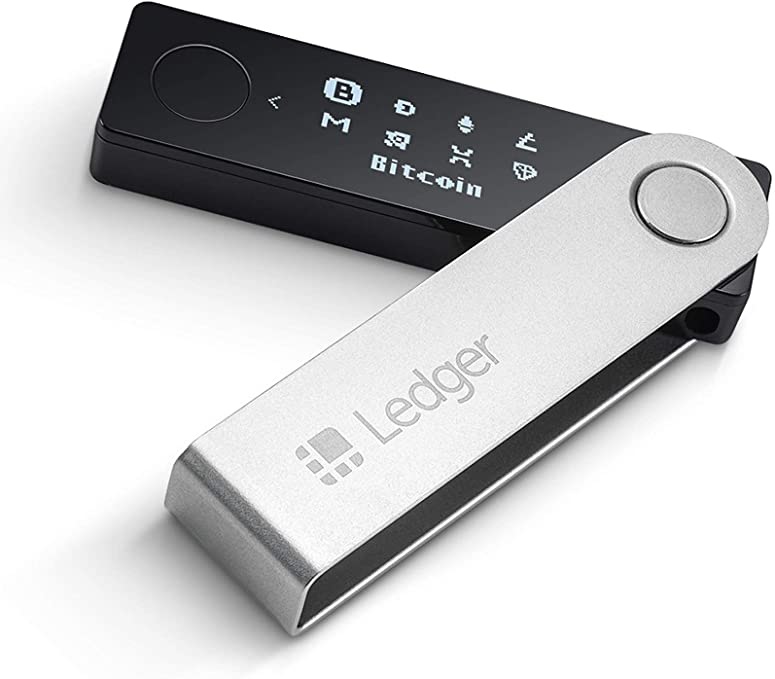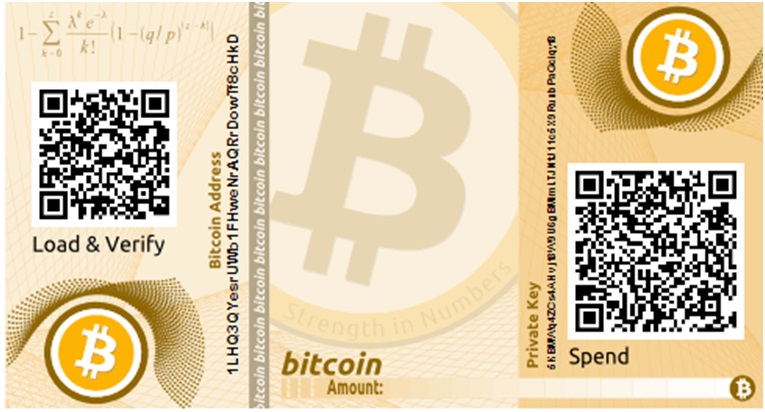If you’re just starting out with your crypto adventures, one of the main quests you’ll have to complete is finding a secure and reliable place where you can keep your bitcoin funds safe. There are many different types of cryptocurrency or bitcoin (BTC) wallets—which one should you pick? Well, let’s have a quick look at what these wallets are.
What is a cryptocurrency wallet?
Cryptocurrencies like bitcoin don’t have any physical form, unlike government-issued paper bills and coins that you keep inside your wallet or purse. Since they are digital currencies, they exist and operate through the means of technology and are stored in digital wallets, which are also called cryptocurrency wallets.
A cryptocurrency wallet is an application or software where cryptocurrency holders can receive, store, and send bitcoin and other digital currencies that the wallet supports. It works like a bank account where you can keep track of your funds.
Cryptocurrency wallets can be an application downloadable on your smartphones, websites accessible via the Internet, or physical devices that you can bring with you or keep in a secure place.
What are the types of crypto wallets?
Now that you know how a Bitcoin wallet works, you might be wondering how many options you have out there. There are different types of crypto wallets, but the hot wallet and cold wallet are what you should bear in mind. Let’s further explore the differences between these wallets and the advantages and disadvantages of using each.
Hot wallets
This type of wallet is the most popular in the crypto space. Hot wallets are digital cryptocurrency wallets connected to the Internet and are available online or on your smartphone. One of the many reasons why they’re popular is because you can get them at lower prices, if not for free.
Web wallets
Many cryptocurrency marketplaces, like Paxful, offer a free bitcoin wallet upon creating an account. This bitcoin wallet is an app that can be accessed through web browsers and comes with a mobile version.
Mobile wallets
This type of hot wallet can be installed on smartphones, making it convenient and easy to use. Mobile wallets are straightforward and ideal for those who use BTC for peer-to-peer payments, buy stuff online, pay bills, and transfer money, among other things.
On another note, since hot wallets are accessible online, they are highly susceptible to cyberattacks, which is why choosing a digital wallet is crucial for every crypto owner. It’s ideal to look for bitcoin wallets that have strong security features, like the Paxful Wallet that uses two-factor authentication (2FA) and multisignature technology.
If you want to go for a digital crypto wallet, always check the safety and security level, as well as the reputation of the wallet provider.
Cold wallets
Unlike hot wallets, cold wallets can’t be accessed through the Internet. These are physical devices where Bitcoin and other crypto assets are securely stored.
Hardware wallets
These come in portable devices like USB flash drives or other external devices. Hardware wallets can prevent instant access to your bitcoin funds since they do not require an Internet connection to be accessible. While they are in no danger from being hacked by cybercriminals, they can still be physically acquired by hackers if not kept securely.

If that happens, you can still cling on to the slight chance that hackers won’t gain access to it, since it’ll be locked behind a strong password combination or pin. Still, you wouldn’t want to get anxious from a scenario like that, so better keep your cold wallet in a very safe and secure place, away from anyone you don’t trust!
Desktop wallets
This type of cold wallet is installed on a desktop or personal computer, which provides owners with full control and access to their crypto funds and private keys. Desktop wallets work as an address where a user can either send or receive crypto funds.
Paper wallets
A paper wallet is a piece of paper where your private key and public address is printed out. Sounds very risky, right? Well, it really is. Paper wallets are considered the riskiest form of cold wallets since they can get soaked in or splashed with water, or crumpled and thrown out in the trash, or taken by the wind. However, they’re also known as the most malware-free form of wallet you can ever have.

Since your private keys are printed out on a piece of paper, you won’t need to worry about malware or cybercriminals that can compromise your crypto wallet. However, be sure to keep your paper wallet safe and protected. If you lose your paper wallet and someone finds it, there’s a high chance that you’ll have to say goodbye to your bitcoin funds.
Aside from hot and cold wallets, there are also multi-signature wallets, which enable a group of people to sign documents and transactions, generated through a combination of multiple unique signatures.
It’s also important to note the importance of backups for cryptocurrency wallets. Losing your private keys and important wallet information means you’ll also lose your bitcoin funds forever. That’s why it’s important to keep multiple backups to prevent such painful loss.
Which one is suitable for me?
So which is the best Bitcoin wallet for beginners? Both the cold and hot wallets have their list of benefits and drawbacks. While both are created to store and keep your BTC and crypto funds safe, deciding which to use depends on your storage needs.
You can ask yourself questions about the price you’re willing to pay for a wallet and level of security and accessibility, among others. If you want a crypto wallet that’s less expensive—or free—and can be accessed instantly for money transfers, payment for online stores, bills, and others, then hot wallets accessible via the Internet may be suitable for you.
On the other hand, if you want to have your private keys and crypto assets inside your indestructible vaults or keep it inside your wallet, you can explore the possibility of using cold wallets.
Be sure to choose a wallet that suits your needs. Whichever bitcoin wallet you prefer to have, always be wary of the information you’ll provide to the wallet providers and protect your crypto wallet information by securing a backup and strong password or PIN. Also, make sure that only you have access to your crypto wallet and choose a reputable and reliable bitcoin wallet provider.